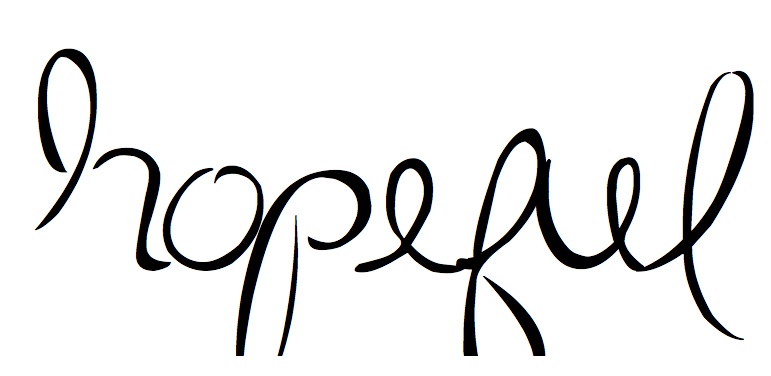 On Thanksgiving, we gathered at my Grandmother and Grandfather’s house in South Carolina; we—my brothers and sister and parents, and my aunt and uncle and their four children, whom we hardly know. And I wondered about the intentionality of creating family, of putting so many people together who are so very different and who are yet connected by the very blood that is pumping life through each of our veins, moment by moment.
On Thanksgiving, we gathered at my Grandmother and Grandfather’s house in South Carolina; we—my brothers and sister and parents, and my aunt and uncle and their four children, whom we hardly know. And I wondered about the intentionality of creating family, of putting so many people together who are so very different and who are yet connected by the very blood that is pumping life through each of our veins, moment by moment.I have much, abundance even, for which to be thankful. But I found myself on Thanksgiving Day, wishing for more. I was wishing that I knew my cousins better and wishing we knew how to act in a way that would make everyone comfortable, make them laugh and high five and stick their tongues out at one another. But we never did those things together when we were very young, and so we found ourselves each whispering quietly to our own siblings and giving each other eyes holding pointed sibling meaning.
As the evening slowed its pace, I was left wondering how to go about cultivating an environment of ease— a home where things are not sacred, but relationships are, where hugs and headlocks embody the same affections, and where every person want to be there, looks forward to being there, longs to be there in that place where love reigns.
I have had similar thoughts about creating community with intentionality. In my church we speak highly of having everything in common and living in community together. And we all wonder aloud what that really looks like. We wonder about sharing our cars and our homes and even our money freely with one another, and I think we all wish we were capable of that. So what stops us?
I feel protective of my money and the things I have because of it. I work hard for little, and feel the selfish pieces of my humanity come out with strength. I tell myself that I share what I can, but do not have enough to really give it to be held in common. But isn’t that the point? Isn’t the idea that if we do not hold our things sacred, but we share them, give them up, give them away, that we are then freed from the bondage of selfishness and materialism that ties us up so fiercely?
I wonder what it would take for us as Americans, as Christians, as selfish, broken human beings, to learn to live like this:
Acts 2:42-47
And they devoted themselves to the apostles’ teaching and the fellowship, to the breaking of bread and the prayers. And awe came upon every soul, and many wonders and signs were being done through the apostles. And all who believed were together and had all things in common. And they were selling their possessions and belongings and distributing the proceeds to all, as any had need. And day by day, attending the temple together and breaking bread in their homes, they received their food with glad and generous hearts, praising God and having favor with all the people. And the Lord added to their number day by day those who were being saved.
Maybe that sounds terrifying to you, or maybe it sounds thrillingly freeing.
If we long for greater depth in relationships, to have more abstract things-- like humor and joy and gratitude-- in common, perhaps the key is to first intentionally give our material things to have in common. Wouldn't you rather share your home, your table, your time, for the sake of relational abundance than to keep to yourself for personal comfort? I fear that my little bubble of middle class material wealth will block me from an abundance of joy and depth of relationship that are available should I only choose to share.
I pray this for you & your community this season— an awestruck spirit, a glad & generous heart filled with praise, and a deep understanding of the grace that saves.


No comments:
Post a Comment